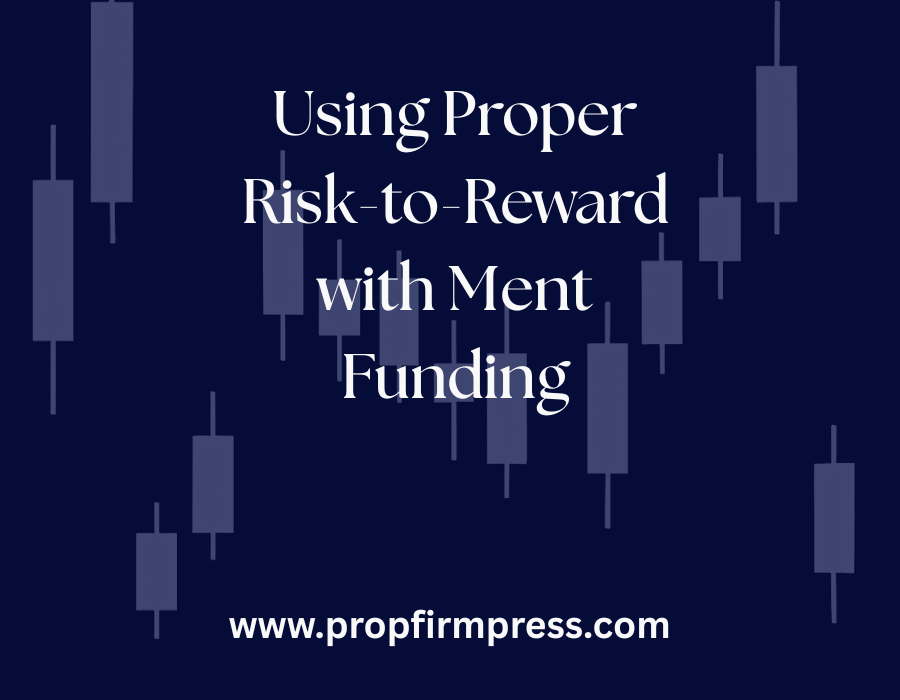Using Proper Risk-to-Reward with Ment Funding
If you’re trying to pass the evaluation at Ment Funding, one of the most important principles to master is the risk-to-reward ratio. This single metric can make or break your chances of success. It helps you build a consistent edge, manage losses, and grow your account responsibly.
What Is Risk-to-Reward Ratio?
Risk-to-reward (R:R) measures how much you’re risking on a trade compared to how much you expect to gain. For example, if you risk $100 to potentially earn $300, your R:R is 1:3.
Why It Matters in the Ment Funding Evaluation
Since evaluations have clear rules—like maximum drawdown and profit targets—you must be strategic. If you risk too much relative to your gain, one losing streak could ruin your challenge. But a strong R:R allows a high win rate OR strong risk control to still get funded.
What’s the Ideal R:R Ratio?
Aim for at least 1:2 or 1:3 on every setup. This way, even if only 40% of your trades win, you remain profitable. Here’s a simple breakdown:
- Win Rate: 50%
- Risk: $100
- Reward: $200
- 10 trades = 5 wins ($1,000) and 5 losses (-$500) = Net +$500
How to Plan Trades Using R:R
- Define your stop-loss before entry
- Use a 1:2 minimum reward target
- Only take setups that meet your minimum criteria
This forces patience and filters out low-quality opportunities.
Use Higher Timeframes for Better R:R
Many traders struggle with R:R because they focus on lower timeframes, where noise is higher. Look to 15-minute, 1-hour, or 4-hour charts to identify cleaner levels and trade setups.
Track Your Average R:R
Log every trade’s risk and reward in your trading journal. At the end of each week, calculate your average. If it drops below 1:2, reassess your entries and targets.
Avoid Chasing Tiny Gains
Scalping for small wins might feel productive, but it rarely provides the R:R needed to pass a prop firm challenge. Focus on high-probability, asymmetric setups that offer 2–3x your risk.
Stay Out of Overtrading Loops
Traders who chase losses often abandon their R:R principles. If a trade doesn’t meet your risk-to-reward rules, skip it. Passing Ment Funding is about discipline, not hustle.
Using strong risk-to-reward habits consistently with Ment Funding can give you a decisive edge—both during the evaluation and once funded. Master this metric, and the rest will follow.
